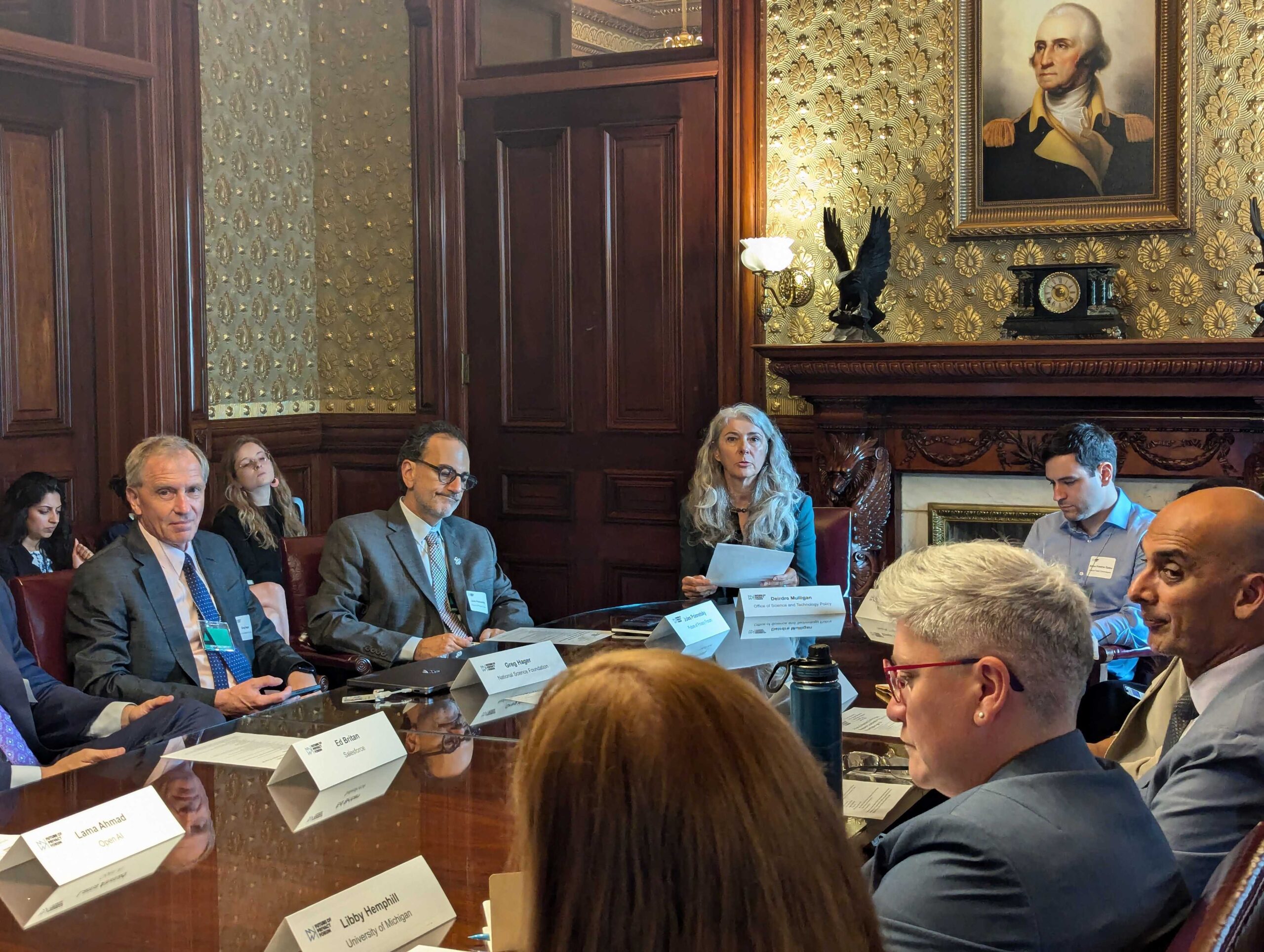
FPF Training Program 2024 – De-Identification (Topic Page)
De-identification FPF is pleased to offer the training topic: De-Identification to you and your team. This session will explore why de-identification can serve as an effective tool to preserve the privacy of individuals, in adherence to current standards and regulations for the protection of personal data. Using a risk-based approach, the session will also cover […]

Repository for Privacy Enhancing Technologies (PETs)
FPF has long supported the use of technologies as well as research to help better understand what data protection and privacy opportunities and challenges they present. When used appropriately, privacy-enhancing technologies can mitigate individuals’ privacy risks while promoting fairness and enabling socially beneficial data use. Broad adoption of these technologies is only possible if they […]

Connecting Experts to Make Privacy-Enhancing Tech and AI Work for Everyone
The Future of Privacy Forum (FPF) launched its Research Coordination Network (RCN) for Privacy-Preserving Data Sharing and Analytics on Tuesday, July 9th. The RCN supports the Biden-Harris Administration’s commitments to privacy, equity, and safety articulated in the administration’s Executive Order on Artificial Intelligence (AI). Industry experts, policymakers, civil society, and academics met to discuss the […]

Reflections on California’s Age-Appropriate Design Code in Advance of Oral Arguments
Co-authored with Isaiah Hinton, Policy Intern for the Youth and Education Team Update: On Wednesday, July 17th, the U.S. 9th Circuit Court of Appeals heard oral arguments for an appeal of the District Court’s preliminary injunction of the California Age-Appropriate Design Code Act (AADC). Judges Milan Smith Jr., Mark Bennett, and Anthony Johnstone appeared interested […]

NEW FPF REPORT: Confidential Computing and Privacy: Policy Implications of Trusted Execution Environments
Written by Judy Wang, FPF Communications Intern Today, the Future of Privacy Forum (FPF) published a paper on confidential computing, a privacy-enhancing technology (PET) that marks a significant shift in the trustworthiness and verifiability of data processing for the use cases it supports, including training and use of AI models. Confidential computing leverages two key […]

A First for AI: A Close Look at The Colorado AI Act
Colorado made history on May 17, 2024 when Governor Polis signed into law the Colorado Artificial Intelligence Act (“CAIA”), the first law in the United States to comprehensively regulate the development and deployment of high-risk artificial intelligence (“AI”) systems. The law will come into effect on February 1, 2026, preceding the March, 2026 effective date […]

Research Coordination Network for Privacy-Preserving Data Sharing and Analytics Focused on Artificial Intelligence
With the support of grants from the National Science Foundation and the Department of Energy, FPF is building a Research Coordination Network (RCN) for Privacy-Preserving Data Sharing and Analytics starting in July 2024 and running through June 2027. The RCN will advance the Biden-Harris Executive Order on Artificial Intelligence by analyzing and promoting the trustworthy […]

FPF Launches Effort to Advance Privacy-Enhancing Technologies in Support of AI Executive Order, Convenes Experts, and Meets With White House
FPF’s Research Coordination Network will support developing and deploying Privacy-Enhancing Technologies (PETs) for socially beneficial data sharing and analytics. JULY 9, 2024 — Today, the Future of Privacy Forum (FPF) is launching the Privacy-Enhancing Technologies (PETs) Research Coordination Network (RCN) with a virtual convening of diverse experts alongside a high-level, in-person workshop with key stakeholders […]

We’re in this Together: Expert Speakers Explore Topics Related to Protecting Privacy, Security, and Online Safety for Young People in Australia
On June 26, the Future of Privacy Forum (FPF) and the Australian Strategic Policy Institute (ASPI) co-hosted an online discussion on Privacy, Security, and Online Safety for Young People in Australia. The panel included welcoming remarks from John Verdi, FPF, and Bart Hogeveen, ASPI, and consisted of experts across all three disciplines, including: The discussion […]
